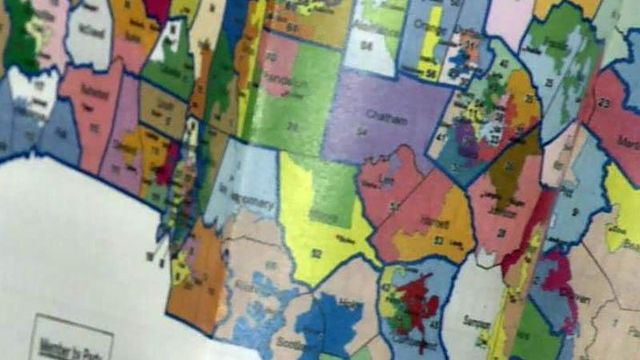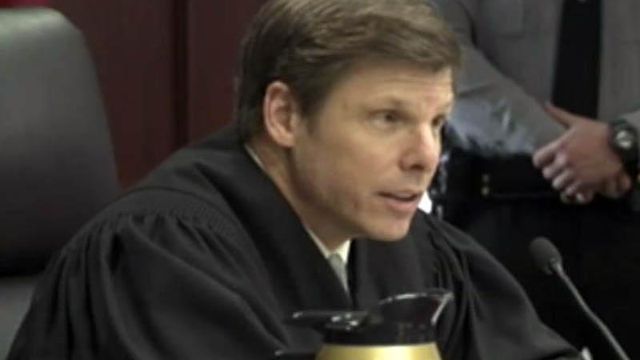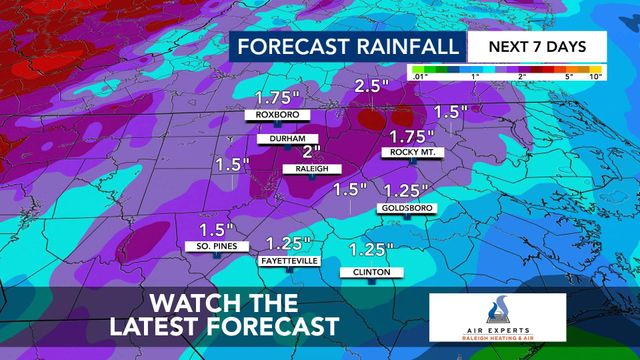Judges refuse to delay NC primary
A three-judge panel on Friday declined to delay North Carolina's May primary because of questions over new voting maps drawn by the Republican-led legislature.
Democratic elected officials and civil rights and election watchdog groups argue the maps are unconstitutional because of racial gerrymandering and boundaries that cross too many county lines. They wanted the May 8 primary postponed until July 10.
The way precincts are carved up across the state could lead to long lines and confusion on Election Day for 2 million people in North Carolina, with black voters twice as likely as white voters to be affected, attorney Eddie Speas said. He argued that holding any election under the new maps would violate voters' constitutional rights.
"We believe, your honors, that the irreparable injury here is clear. It's immediate. It's widespread," Speas said.
Legislative leaders and lawyers for the state maintain that the boundaries are lawful and there's no evidence that they would cause voter confusion. Therefore, no delay is needed.
"The real confusion comes when the schedule is disrupted. The real confusion comes when the schedule is compressed," said Special Deputy Attorney General Alec Peters, who defended the maps for the state.
Noting that candidate filing for the primary is scheduled to begin in less than four weeks, Wake County Superior Court Judge Paul Ridgeway, the chief judge of the special panel, said a delay wouldn't solve any questions over the maps.
"This unanimous decision of the court is based on pragmatic considerations," Ridgeway said in handing down the ruling. "The court is not persuaded that a delay of the primaries ... will have any meaningful, practical value or materially aid in protecting the rights asserted by the plaintiffs."
A delay wouldn't give enough time for lawmakers to adjust the voting maps and get them approved by the U.S. Department of Justice – and reviewed by the courts – and still allow for a reasonable period for candidate filing and campaigning, he said.
Still, Ridgeway said, the decision to move forward with the May primaries shouldn't be seen as minimizing the arguments presented against the voting maps.
"Plaintiffs, in their challenge, have raised serious issues and arguments about, among other things, the extent to which racial classifications were used in the enactment of these plans," he said. " Governmental acts that tend to stigmatize and separate citizens by the color of their skin ... are an affront to the dignity of African-Americans and, indeed, an affront to the sensibilities of all of us."
The three-judge panel will continue to review the case to determine whether the voting maps need to be redrawn.
Re. David Lewis, who was co-chairman of the Joint Redistricting Committee in the legislature, applauded the ruling, saying it would provide "certainty" for both voters and candidates in the upcoming elections.
"From the beginning of this process, we have endeavored to create maps that are fair and legal. Today’s decision protects the certainty our citizens deserve to have in our electoral process," Lewis, R-Harnett, said in a statement.
“These fair, legal and competitive maps once again withstood legal and political scrutiny,” Senate President Pro Tem Phil Berger said in a statement. “Today’s decision ensures our primary elections will continue as scheduled, and it lifts a cloud of uncertainty from the elections process."
Democrats, meanwhile, said they expect that the maps will eventually be redrawn.
"We are disappointed (the judges) decided not to delay the primary election while they consider our case," House Minority Leader Joe Hackney and Senate Minority Leader Martin Nesbitt said in a joint statement. "We continue to believe the panel will ultimately agree this plan re-segregates North Carolina. This proposal also breaks apart too many precincts and will cause too much confusion on Election Day. This case is far from over.”
Anita Earls, an attorney for the North Carolina chapter of the NAACP, which was among the groups that sued over the maps, said no decision has been made on whether to appeal the judges' ruling to the state Supreme Court.











